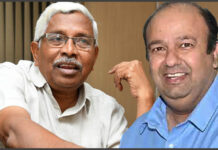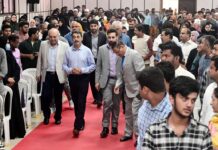Community groups unite to make a positive impact during Milad-un-Nabi.

Hyderabad : Milad-un-Nabi, the day that commemorates the birth of Prophet Muhammad (peace be upon him), is set to be observed with a more restrained tone in the city this year. Several Muslim groups have either canceled or rescheduled their traditional Milad-un-Nabi processions, leading to a notable shift in the festivities.
The vibrant spectacle of loud DJs, dazzling illuminations adorning major markets and streets, grand exhibitions, and oversized cutouts will be noticeably absent. Instead, the focus will shift towards more charitable and religious activities, including blood donation camps, religious programs, food distribution to the underprivileged, and visits to old age homes and orphanages, as highlighted by Amjedullah Khan, spokesperson for the MBT party.
Milad-un-Nabi is celebrated annually on the 12th day of the Islamic month of Rabi-ul-Awal. Typically, the celebrations include bike rallies that kick off the night before and continue throughout the day, with the community decorating the streets with strings of lights and playing DJ sound systems at night.
However, this year presents a unique challenge as the festival coincides with the Ganesh Nimarjanam procession. In light of this, community elders held a meeting with the procession organizers and decided to reschedule the ‘Milad juloos’ to October 1. Religious meetings originally planned for the day or earlier have been either brought forward or postponed accordingly.
Tameer-e-Millat’s public meeting, initially scheduled for the festival, has been rescheduled to September 24 and will take place at the Exhibition Grounds. Mohammad Ziauddin Nayyar, President of Tameer-e-Millat, assured that the program would maintain its grand scale as in previous years, aligning with the community elders’ emphasis on reducing extravagant expenses during the celebrations.
The city-based organization Tahreek Muslimeen Shabban has urged people to prioritize prayer gatherings at local mosques and homes on the day. Mustaq Malik, the organization’s president, emphasized the importance of mosque management committees organizing lectures addressing the harmful effects of drugs and other societal vices.
Several ‘mohalla’ (neighborhood) groups have planned visits to government schools, colleges, hospitals, orphanages, and old age homes to distribute fruits, food, and essential items such as clothing and utensils.
Mohd Tauseef, a businessman from Khilwat, explained that funds typically allocated for food camps and illuminations would be redirected towards welfare purposes this year.





